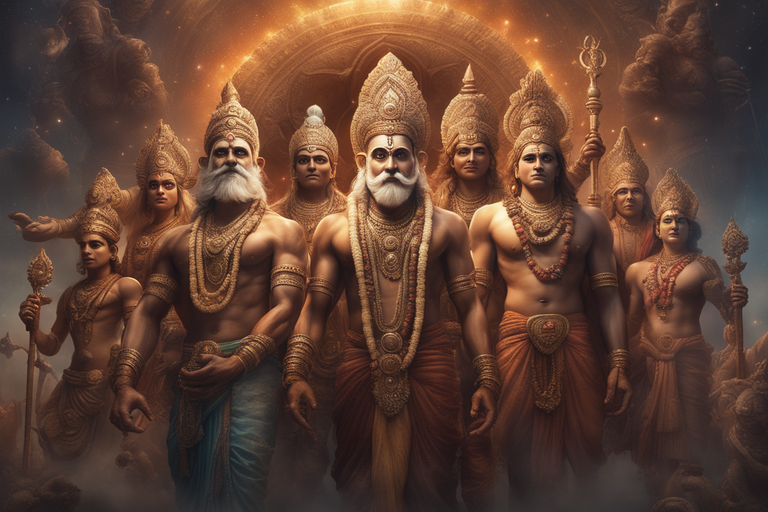In Hinduism, worship extends beyond mere rituals, embodying a profound connection with divine forces that govern existence. From Vishnu, the protector, to Shiva, the transformer, and beyond, each deity plays a unique role in guiding devotees towards righteousness, wisdom, and prosperity, shaping the spiritual landscape of millions. Below are few of the reasons why devotees worship different gods:
Vishnu: The Maintainer and Guardian of all realms. Vishnu is the preserver that looks after the overall protection, maintenance of order/ peace, and the restoration of dharma.
Shiv: Destroyer and the transformer. Shiva is worshipped for inner change, release from the cycle of birth and death and freeing from the pain which is caused due to ignorance and attachment
Ram: Incarnation of Vishnu and exemplar of dharma. Lord Ram is glorified for inculcating virtues, courage and hardiness to adhere to righteousness and truth in testing circumstances
Krishna: Another Vishnu incarnation associated with his wisdom, elegance and diplomacy. Krishna is worshipped for technical direction in the sphere of relationships, spiritual development, and spiritual discipline.
Hanuman: Symbol of loyalty and might. Hanuman is worshipped for protection, courage, strength and for the removal of hurdles. He is also revered if not idolized for his unflinching devotion to Ram
Shri Ganesha: God of wisdom, knowledge, and obstacle remover. Prior, In all the Hindu ritualistic functions, Ganesha is the one which is worshipped. People come to him for getting his grace in new streams of income, knowledge, and for shunning worldly as well as spiritual hindrances
Maa Durga: Manifestation of the femanine power and the mighty goddess who fights with elvil and the demonic powers. Devotees approach her to obtain her mercy to protect them from enemies; give them the strength and power needed to win against all that haters send their way.
Maa Parvati: Goddess of love, fertility and devotion. As his wife, she is beseeched to grant emotional balance, social harmony, marital bliss, and awakening tender and loyal love within Vahana’s heart.
Maa Lakshmi: Goddess of wealth, good fortune and prosperity (material as well as spiritual). She is called on for easing financial woes, attracting wealth, luck, and success and guaranteeing material comfort.
Maa Kali: Symbolizes time, change and destruction. Kali is worshipped for protection against bad, to find power to overcome problems and negative forces in life and also to gain courage to deal with every problem in life.
Maa Saraswati: Goddess of knowledge, music, art, wisdom, and learning. Devotees pray to her for help with education, insight, artistic and musical skills, and the acquisition of wisdom
Each deity, with their distinct attributes and teachings, serves as a beacon of strength, wisdom, and prosperity, encouraging followers to embody virtues such as righteousness, courage, and devotion. In essence, the practice of worship in Hinduism is not merely about seeking divine favor but about fostering a deeper connection with the universal principles they represent, guiding humanity towards a harmonious and fulfilling existence.

